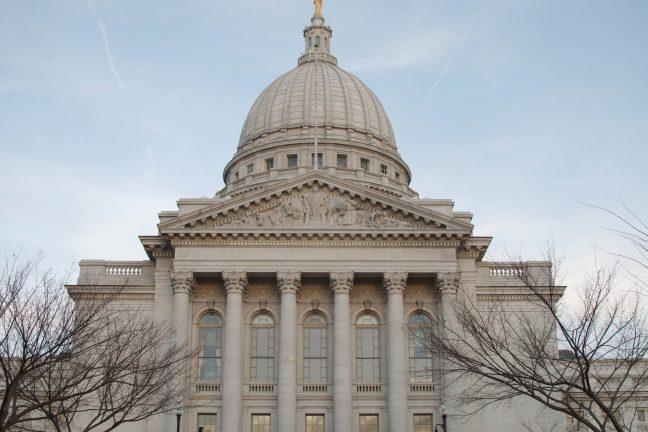Though election results have solidified Wisconsin’s desire to keep the position of state treasurer, don’t lose sight of fundamental values of checks and balances. The state treasurer position remains intact, but we should not be quick to give back any power.
Over the last 20 years, Wisconsin has been gradually diminishing the Office of the State Treasurer’s powers, moving the bulk of its responsibilities to the Department of Administration and the Department of Revenue. Their most recent move eliminated the position of Assistant State Treasurer in 2015.
But, in April of this year, 62 percent of Wisconsin voters rejected a constitutional amendment to eliminate the State Treasurer, and in the November midterms, they elected Sarah Godlewski, arguably Wisconsin’s greatest advocate for the expansion of the office, to fill it. It seems like Wisconsinites are signaling that they want to keep the 170-year-old office — comprised of its sole member, the treasurer — intact. There are two big arguments for keeping the office alive — fiscal accountability and the potential to revert the spread of power back to an elected official. But taken together, Wisconsinites should be careful clinging on to a position that is unnecessary and has no power.
Gridlock does not prevent good governance — it is good governance
Some fear that eliminating the state treasurer would undermine checks and balances, citing the treasurer’s role as an elected financial watchdog over the executive and legislative branches. One problem with this argument is the unfortunate truth that the office no longer looks the way it did prior to 1995. Slowly but surely, the legislature stripped the office down to a single person and a single task of sitting on the three-person Board of Commissioners of Public Lands, not on accident because this is the only job of the treasurer specifically enumerated in the State Constitution. Wisconsin’s oldest state agency, the BCPL oversees the disbursement of funds generated by the sale and management of trust lands, the largest beneficiary of which are K-12 public school libraries.
When Godlewski is sworn into office, she is not going to have much to work with. Granted, it’s a large fund, roughly $1 billion, but by the Constitution, she is not even allowed to change where those funds go. In terms of keeping the legislature and executive branches’ powers in check, she’s literally on her own.
The strongest argument for putting power back in the office appeals to checks and balances in a more big-picture approach. Many people, like former Republican State Treasurer Jack Voight, Secretary of State Doug La Follette and State Sen. Chris Kapenga, R-Delafield were against eliminating the office because of the fact that is held by an elected official. If the position had been eliminated, its last areas of traction would get swallowed up like rest of the treasurer’s old jobs inside un-elected administrative bloat, and the third seat of the BCPL would have been given to the lieutenant governor. Having an elected state treasurer ensures at the very least the people have a figurehead responsive to the people and can potentially lobby the legislature to reclaim old duties back from the DOA and DOR.
One response to this argument is an appeal to the original desire for a watchdog — namely, having someone who can make financial assessments and freely censure public spending when the moment arises. The Legislative Fiscal Bureau and the Legislative Audit Bureau, both non-partisan, do just that. Together, they keep both the legislative and executive activities in check. Another response, presented by the outgoing treasurer himself Matt Adamczyk, is that many of the old functions of the office went to agencies that are able to streamline the requests. For example, oversight of the unclaimed property program went to the DOR, where they were able to return about $20 million back to the rightful owners using social security numbers and tax information, regardless of whether a claim was filed.
One final argument for keeping the office is the quick and simple fact that the voters have already spoken — the state had their chance, at least twice now, to eliminate the treasurer and they lost it or chose to ignore it. The state followed all the procedures for changing the constitution, and ultimately, it failed at the final referendum stage. But this argument is a paradigmatic dismissal of public-sphere debate. Of course, citizens have had their say, but as long as there are disagreements, the question remains open.
The incoming treasurer has a lot of decisions to make, and as the people who put her in office, it is our responsibility to keep her in check and keep her “activism” to balanced levels.
Lianna Schwalenberg ([email protected]) is a fifth-year senior majoring in communication arts and philosophy.














